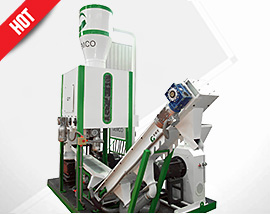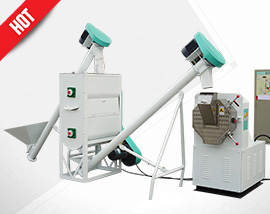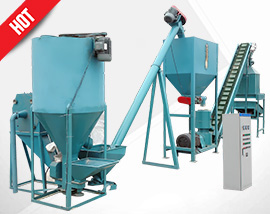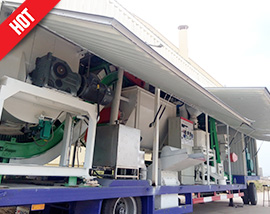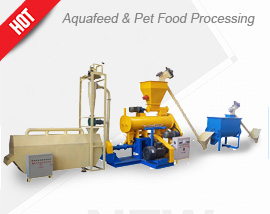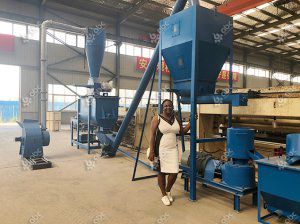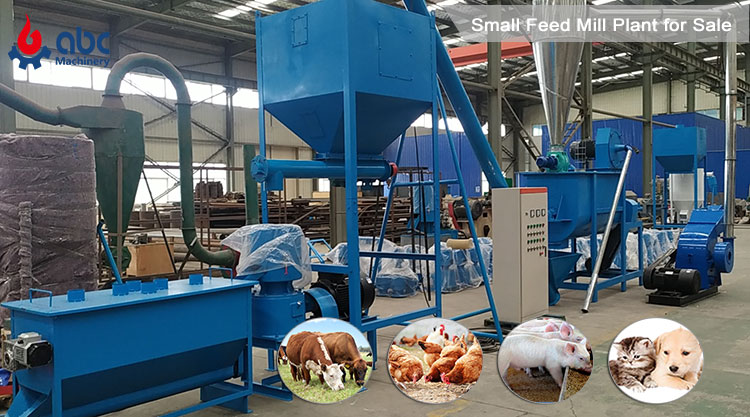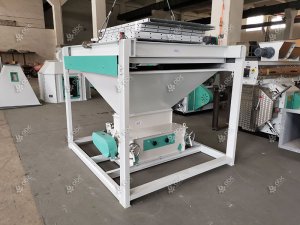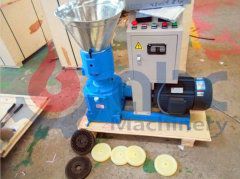With increasing focus on sustainable development and environmental conservation, the utilization of agricultural waste and animal manure has become a hot topic. No longer deemed useless, they are processed into organic fertilizers, regarded as valuable resources harboring rich organic matter and various nutrients. Particularly, the organic compounds and nutrients like nitrogen, phosphorus, and potassium are crucial for crop growth and development. Hence, the effective handling and utilization of agricultural waste, along with the organic fertilizer production process, have become a profitable project. (Related Article: Cost to Organic Fertilizer Production Plant Project )

Transforming Agriculture: Organic Fertilizer Processing
This topic aims to raise awareness about the utilization of agricultural waste and provide practical guidance for beginners interested in organic fertilizer production. ABC Machinery will focus on the potential value of agricultural waste, followed by an introduction to the basic principles and methods of organic fertilizer production. Beginners will receive a concise and understandable beginner's guide to help them easily grasp the techniques of organic fertilizer production.
Agricultural Waste: A Hidden Treasure
Agricultural waste refers to materials no longer needed in the agricultural production process. These materials include but are not limited to:
- Crop residues such as rice straw, corn stalks, and wheat bran.
- Animal manure and urine, such as cow dung and chicken manure.
- Wastewater and waste generated during livestock farming, such as manure wastewater and livestock waste.
- By-products and waste generated in agricultural production, such as husks, bean dregs, and straw.
Approximately 30%-40% of agricultural waste is suitable for composting, depending on the type and condition of the waste. These agricultural residues carry a significant amount of organic matter and rich nutrients such as nitrogen, phosphorus, and potassium, making them indispensable valuable resources for sustainable agricultural development. Producing organic fertilizers not only provides nutrients for agriculture but also helps address the pollution caused by waste to the environment.
Recognizing the Value of Agricultural Waste Resources
Agricultural waste is not worthless but contains rich nutrients, worthy of further exploration and utilization. However, agricultural residues that were often considered worthless in the past, such as straw and livestock manure, can be transformed into valuable organic fertilizers under proper processing, providing the necessary nutrients for crop growth.
Many countries and regions are striving to promote the practice of converting waste into organic fertilizer to reduce landfill volumes, decrease environmental pollution, and enhance agricultural sustainability. Some countries and regions encourage farmers and businesses to convert waste into organic fertilizer through policies, regulations, and economic incentives, including crop residues, kitchen waste, and animal manure. Advanced waste treatment technologies such as composting, anaerobic fermentation, and bio-gasification are also widely adopted. (Read More: Top 5 Fertilizer Manufacturing Company Insight)
Organic Fertilizer Processing: From Theory to Practice
To achieve effective utilization of agricultural waste, appropriate processing methods must be mastered. Currently, the main method used is composting, which converts waste into organic fertilizer through aerobic fermentation and anaerobic fermentation.
The choice between aerobic composting and anaerobic composting depends on the type of waste and environmental conditions. Proper adjustment of the carbon-nitrogen ratio and control of factors such as moisture, temperature, and pH are crucial during composting. Through these operations, organic matter in agricultural waste undergoes biochemical degradation, forming organic matter similar to humus, which can ultimately be used as fertilizer or soil conditioner.
Please feel free to contact us to learn more information about Organic Fertiliser Processing!
Beginner's Guide: Making Organic Fertilizer from Scratch
For investors new to the organic fertilizer industry, making organic fertilizer may seem complex. Generally, depending on the scale, it can be categorized into centralized processing and decentralized processing. By following the correct steps and methods, one can gain a simple understanding of the organic fertilizer fermentation process.
-
1. Preparation
Firstly, prepare the necessary materials, including agricultural waste (such as straw, livestock manure, etc.), water, and composting bins or piles. Also, ensure to select a suitable location for stacking, with good ventilation and avoiding water accumulation.
-
2. Constructing the Compost Heap and Fermentation Tank
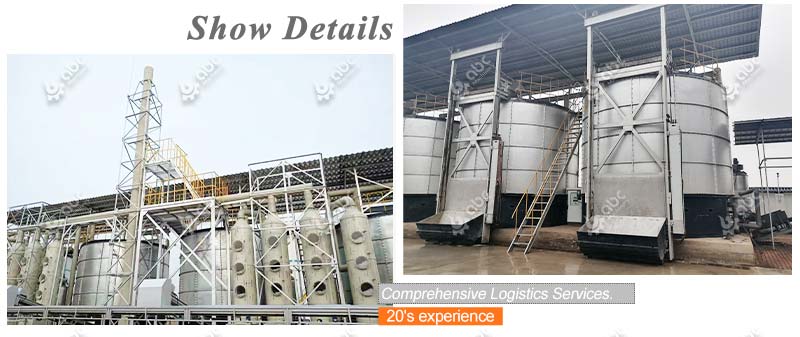
Affordable Investment: Organic Fertilizer Vertical Fermentation Tank for Sale
Once the materials are ready, mix the agricultural waste in the appropriate proportions and stack them into the prepared compost bins or heaps. During the stacking process, consider adding compost starters to expedite the fermentation process, potentially speeding up decomposition by up to 50%.
While large-scale composting operations may involve the use of specialized machinery for mixing and turning the compost heaps, small-scale composting at home can be achieved with simple bins or heaps, often turned manually. (You may also like hot selling prducts: Manure Dewatering Screw Press Machine and Industrial Organic Fertilizer Fermentation Tank)
-
3. Controlling Fermentation Conditions
After stacking, it's crucial to monitor and control the fermentation conditions of the compost heap. Maintain proper humidity and ventilation, regularly turning the compost to promote fermentation. Additionally, monitor the temperature of the compost heap, ensuring it falls within the optimal range of 50°C to 65°C.
In large-scale composting facilities, automated systems may regulate factors like temperature, moisture, and aeration to optimize the composting process. Conversely, small-scale composting relies on manual intervention, such as turning the compost heap periodically to ensure proper aeration and decomposition.
-
4. Completing the Composting Process
Following a period of fermentation, the agricultural waste gradually transforms into organic fertilizer. Once the compost exhibits a dark brown color, a soft texture, and no foul odor, the composting process is complete. Applying the finished organic fertilizer to farmland not only enhances soil fertility but also promotes crop growth, contributing to sustainable agriculture practices.
The fermentation process of organic fertilizer is a precise one, requiring careful monitoring and management of various parameters to ensure the high-quality production of organic fertilizer. If you are interested in the details of organic fertilizer fermentation equipment or would like to receive a free quotation and consultation, please feel free to contact us. Our professional team will provide you with full support and tailor the most suitable solution to meet your needs.



